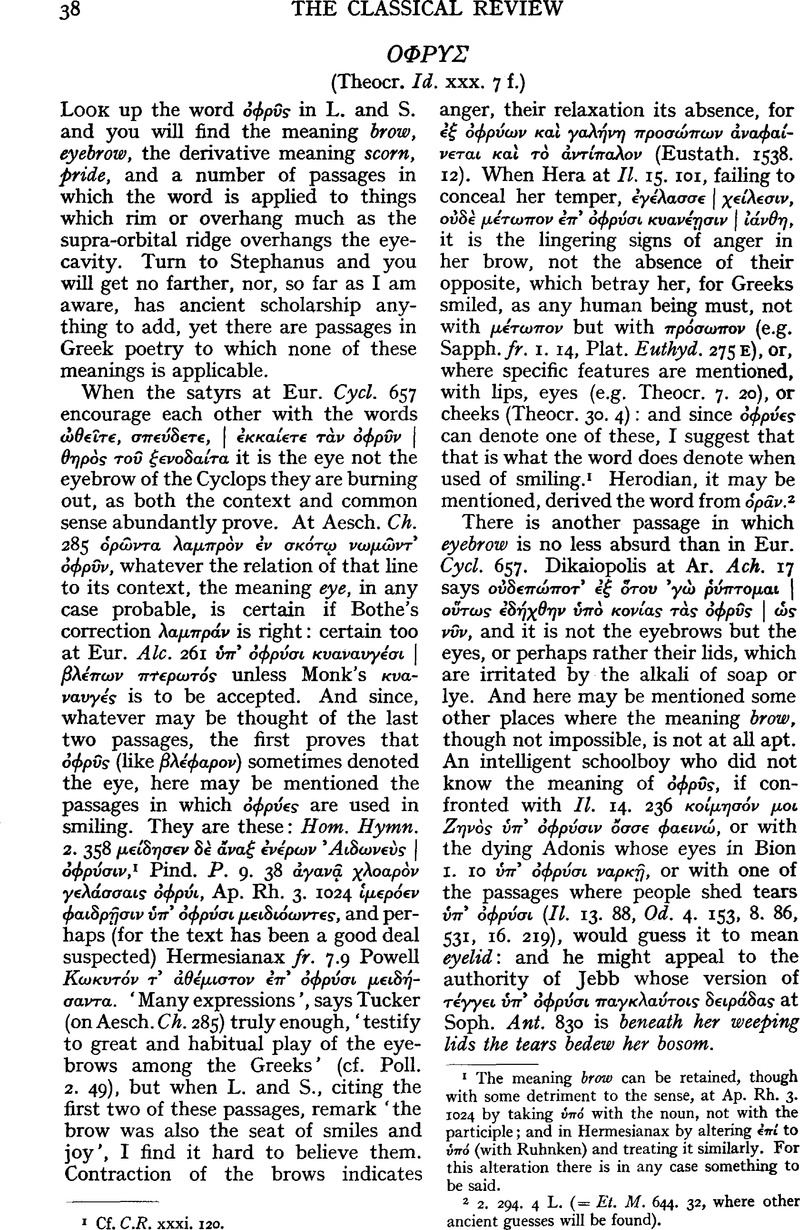No CrossRef data available.
Article contents
ΟφυΣ
Published online by Cambridge University Press: 27 October 2009
Abstract

- Type
- Review Article
- Information
- Copyright
- Copyright © The Classical Association 1944
References
page 38 note 1 Cf. C.R. xxxi. 120.
page 38 note 1 The meaning brow can be retained, though with some detriment to the sense, at Ap. Rh. 3. 1024 by taking ύπό with the noun, not with the participle; and in Hermesianax by altering ⋯πί to VTTO (with Ruhnken) and treating it similarly. For this alteration there is in any case something to be said.
page 38 note 2 2. 294. 4 L. (= Et. M. 644. 32, where other ancient guesses will be found).
page 39 note 1 The absurdity of eyebrow has already driven some translators to this rendering, e.g. Fraccaroli and Wade-Gery and Bowra in Pindar, Starkie in Aristophanes.
page 39 note 2 At 24 the MS. has unmetrically ποτ' ⋯μόν, and Bergk, followed by most editors, wrote προτ'. Edmonds, followed by Legrand, here writes προτίδην. The Aeolic form of the preposition, however, is πρός, and Hoffmann was presumably right in restoring it in both places.
page 39 note 3 The plural άμμµ is (to me at least) somewhat unwelcome in this context. Hoffmann wrote λέπτα με, which goes some way beyond the other instances of anomalous lengthening in T.'s Aeolic poems but is not necessarily to be condemned for that reason. Since, however, it is a single glance which the boy gives, λέπτον με might be considered.
page 39 note 4 But not attractive. δν⋯ I should then suppose to be instrumental, and the phrase equivalent to the common óφθαλμοῖς or ⋯μμασι added superfluously to verbs of seeing.


